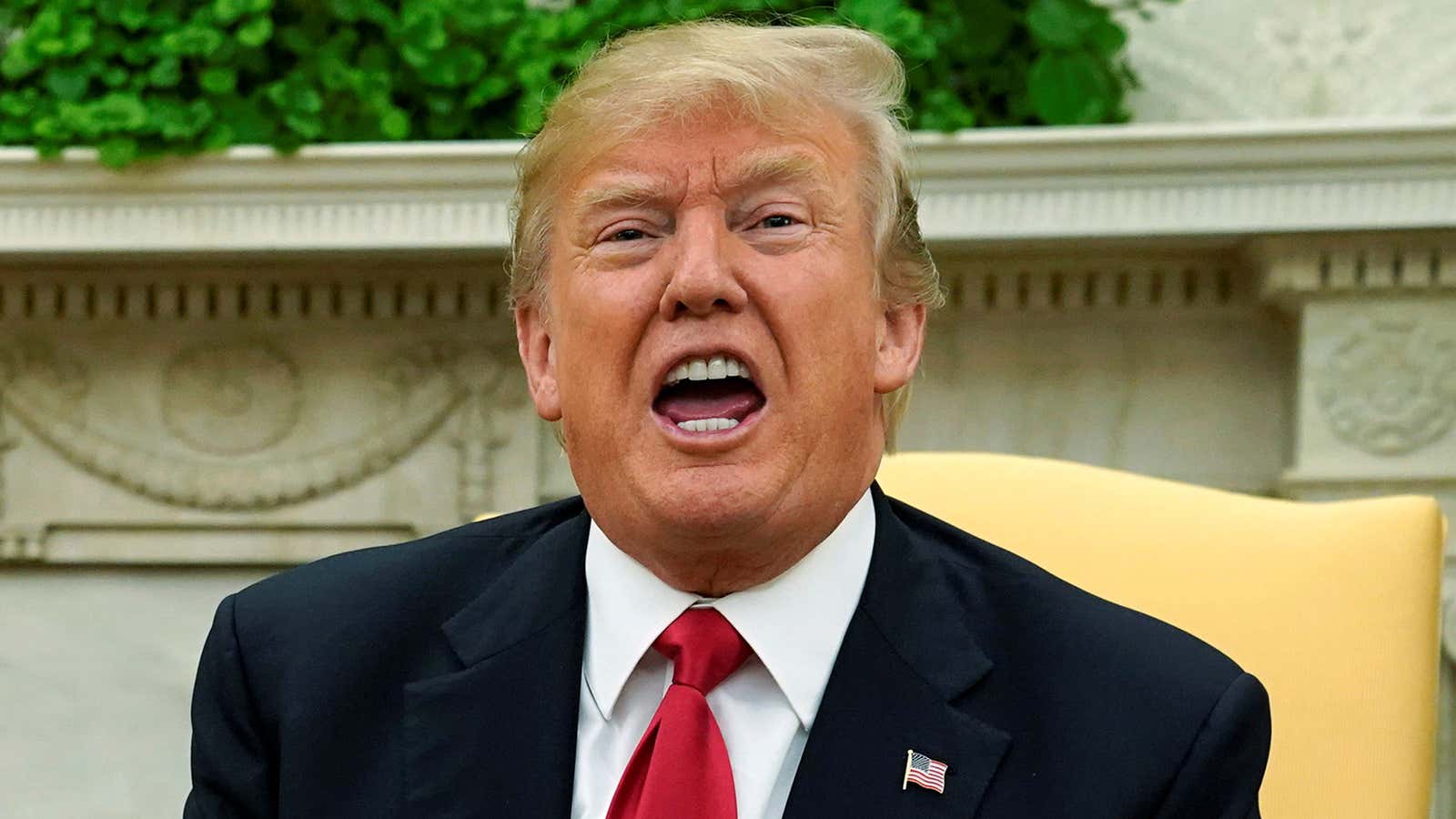The job of a journalist is to give a damn. To call out bullshit. To uncover the fucked up. Yet journalists are discouraged from describing their work as such—because swearing is taboo.
That is changing, thanks to America’s sweary president, Donald Trump. After he reportedly referred to various countries as “shitholes,” the mainstream media did something surprising: They actually used the word. CNN’s usually unprofane chyron—the little strip of text at the bottom of the screen—laid the word out plainly.
A bot that tweets whenever the New York Times uses a word for the first time identified the first occurrence of “shithole” in the publication’s history.
This bucks a decades-long tradition at many large news outlets in the US: engaging in verbal gymnastics to avoid saying some [expletive] or another. A few years ago, the Times wrote three articles about the “children’s book for adults” Go the Fuck to Sleep, but did not (paywall) once mention its title. Just last month, it published a piece about the play Pussy Sludge under the headline, “Gracie Gardner Wins Prize for Play With Unprintable Title.”
The Trump administration has made it hard to be both factual and profanity-free. The Times might choose not to publish the word “pussy” in reference to a play, but Trump’s phrase “grab ’em by the pussy” appears unedited. The publication also quoted Anthony Scaramucci, briefly the White House communications director, saying he is “not Steve Bannon…trying to suck my own cock.” (The media has not entirely evolved—Wolf Blitzer still went to great lengths to avoid saying “shithole” on CNN.)
If there’s one good thing to come from all of this White House profanity, it is an increasing willingness for news types to use curse words. For one thing, it brings their language closer to that of spoken American English. Americans like to curse, after all. A 2006 survey found that 64% of people in the US used the word “fuck.” That proportion has no doubt only increased in the 12 years since.
“The meaning of a word is its use in the language,” wrote Ludwig Wittgenstein, the influential 20th-century philosopher of language. The meaning of swear words as understood by the audience, and its ease with them, have diverged from that of large media outlets. There is no need for the Times or CNN to protect us from words we likely hear every day.
There is another reason to swear: It is powerful, and not doing it is an unnecessary sacrifice of expressiveness. Journalists don’t pull punches in their reporting, and they should not do so in describing what they find. Politicians can tell “lies,” and they can state “falsehoods,” but sometimes they say straight-up “bullshit.” Sexual harassers are not “troubled” or “inappropriate,” they are just “assholes.”
This might seem unprofessional, but that’s only because nonfiction writers do not commonly use curses. Swearing, in everyday speech, is often used as a replacement for an argument.
“What don’t you like about the policy?” Person A asks.
“It’s just fucked up,” Person B responds.
That kind of exchange does not belong in journalism. There is a way to swear professionally, appropriately, and sparingly, based on facts.
For example, I will confidently say that calling any country a “shithole” is a shitty thing for an American president to do.
